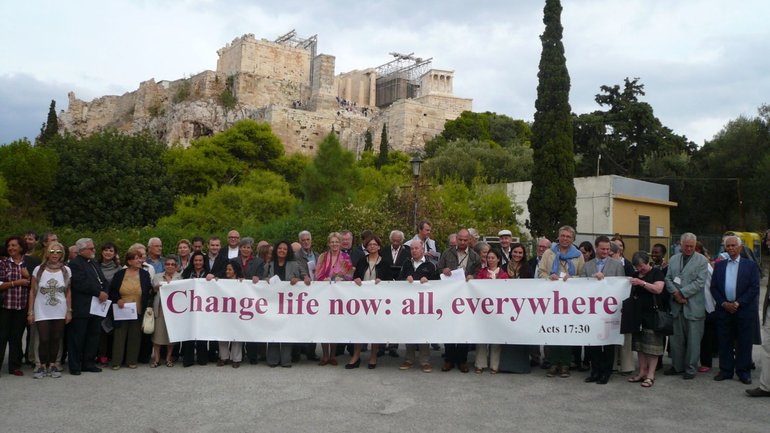The Conference of European Justice and Peace Commissions has issued the Statement on Russia's war in Ukraine

The main messages of this Document:
In the current situation, we hope that:
1. the war will end as soon as possible; Ukraine will be a free, secure and independent country within its internationally recognized borders, a home for each of its citizens, regardless of their language, religious affiliation, ethnic background or nationality.
2. internally displaced persons are provided with sufficient aid; refugee-hosting countries will have the endurance to persevere with their gracious hospitality so that the people displaced from Ukraine receive continued and generous accompaniment.
3. beyond Ukraine, our nations will show strong solidarity with those people and regions of the world most affected by the exacerbation of the worldwide food crisis; the utmost diplomatic and cooperation efforts are immediately engaged to get food to the hungry.
4. we Europeans will have the wisdom to systematically place the alleviation of suffering above concerns for our own prosperity and be able to prove our resilience and endurance, that, at the same time, the burden will be shared fairly, and excess profits used to support the poorest.
5. Ukrainians, with international support (ICRC, OSCE, Joint InvesAgaAon Teams), have the strength to gather evidence and reports about violations of human rights law, war crimes and crimes against humanity; they get the resources to investigate and prosecute the perpetrators, for unsanctioned heinous crimes encourage and haunt countries for generations.
6. the dead, civilian and military on both sides, are duly remembered; the surviving victims and families are adequately compensated and cared for; that memory is preserved in a spirit of reconciliation.
7. in Europe fears to engage in a radical personal and collective transition towards the decarbonization are transcended; and the leaders of the European Union accelerate the Green Deal because decoupling from fossil energies is essential, not only to regain leeway from Russia and other authoritarian regimes but also to meet our obligations to future generations.
8. the leaders of the European Union will support Ukraine’s reconstruction and grant Ukraine candidate status at the upcoming European Council in June, also taking into account the aspirations of other European countries, especially in the Western Balkans, to become full members, and that a process for a new collective reinforced security architecture for Europe is engaged.
9. the United Nations recover sufficient strength to act as an effective instrument for conflict resolution and multilateral diplomacy and to enforce the respect of the UN Charter and of humanitarian law through the International Criminal court.
10. where people and peace are threatened by aggression and war, Churches and their representatives will act more closely together and with other religious communities for justice and peace in the world.
11. the extraordinary strength of ecumenical prayers for peace will continue to be a ray of light in a war-torn world.









